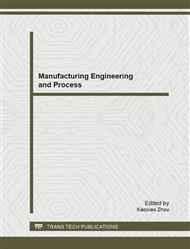p.47
p.52
p.57
p.61
p.65
p.75
p.82
p.93
p.101
An E2GPGP-GASA-Based Multi-Agent Job Shop Scheduling System
Abstract:
In this paper, a job shop scheduling model combining MAS (Multi-Agent System) with GASA (Simulated Annealing-Genetic Algorithm) is presented. The proposed model is based on the E2GPGP (extended extended generalized partial global planning) mechanism and utilizes the advantages of static intelligence algorithms with dynamic MAS. A scheduling process from ‘initialized macro-scheduling’ to ‘repeated micro-scheduling’ is designed for large-scale complex problems to enable to implement an effective and widely applicable prototype system for the job shop scheduling problem (JSSP). Under a set of theoretic strategies in the GPGP which is summarized in detail, E2GPGP is also proposed further. The GPGP-cooperation-mechanism is simulated by using simulation software DECAF for the JSSP. The results show that the proposed model based on the E2GPGP-GASA not only improves the effectiveness, but also reduces the resource cost.
Info:
Periodical:
Pages:
65-74
DOI:
Citation:
Online since:
April 2012
Authors:
Price:
Сopyright:
© 2012 Trans Tech Publications Ltd. All Rights Reserved
Share:
Citation:


